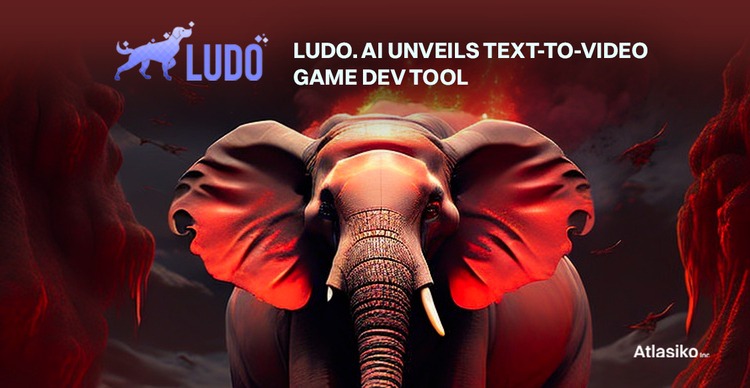Ludo.ai, a pioneer in integrating AI into text-to-video game dev tools, has officially launched its Video Generator tool. This innovative tool harnesses the power of generative AI, specifically designed to assist game developers in seamlessly translating text prompts into captivating gameplay videos.
Tom Pigott, the visionary CEO of text-to-video Ludo.ai, announced the beta release of the Video Generator, emphasizing its potential to redefine the creative landscape of game development.

The tool promises to empower developers, particularly indie studios facing escalating costs, by simplifying the ideation and creation process. According to Pigott, the Video Generator enables developers to visualize their game concepts swiftly and realistically, offering a glimpse into gameplay dynamics within seconds.
Pigott reflects on the company's journey, acknowledging the transformative impact of generative AI on the gaming industry. He credits Open AI, ChatGPT, and other image generators for paving the way, stating,
"A lot of that work was taken care of with Open AI and ChatGPT and the other image generators."
Pigott envisions the Video Generator as a game-changer, not only enhancing productivity but also fostering creativity. He emphasizes its potential to facilitate decision-making for executives by providing a sneak peek into a game's appearance and mechanics at an advanced stage.

In 2024, Pigott predicts a pervasive presence of AI-generated video, with the Video Generator producing 5 to 10 seconds of captivating footage. He reassures that the focus remains on gaming developers, stating,
"We're not trying to be all things to all people."
Despite the rapid acceleration of AI technology, Pigott dismisses concerns about job displacement, foreseeing a future where game developers become curators and editors of AI-generated assets. He attributes industry layoffs to games falling short of expectations rather than the influence of AI.
While optimistic about the future, Pigott notes that Ludo.ai text-to-video has been cautious about seeking external funding, relying on its revenue generation. The platform, initially free, recently transitioned to a monetization model.
As Ludo.ai celebrates a user base exceeding 30,000, Pigott remains committed to the company's original vision – to be the comprehensive AI-powered platform for game developers. Looking ahead, Pigott envisions the next frontier for AI in 3D asset generation, acknowledging the challenges posed by intricate physics, particularly in user-generated content.
If you are interested in the dynamic and ever-evolving fields of technology and AI, discover more news at Atlasiko!







